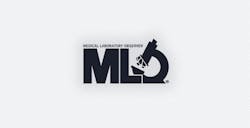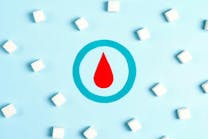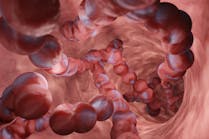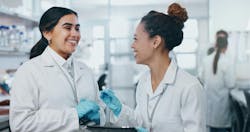What happens to medical laboratory science scholars—the students awarded American Proficiency Institute (API) Scholarships? Do they pursue careers in the laboratory field? Do they succeed in their careers, and do they experience satisfaction with their choices? Viewed over time, do the scholarships benefit the students and the laboratory community? The API has recently completed its fifth year of granting scholarship awards to laboratory science students. The best way to assess the value of the program is to speak to some of the scholarship recipients. Where are they now, and how are they doing?
One of the first API scholars, Tena Ewing, received the award in 2008, and later graduated from the University of Massachusetts at Lowell with a degree in Clinical Lab Sciences/Medical Technology. When she received the award, Ewing explained that she became interested in medical technology after her child became ill. “I needed to fully understand what the doctors were saying to me. I started this program seeking knowledge for myself, and I’ll be leaving with a career in which I can help others.”
Today, Ewing is employed at the microbiology lab at the Lahey Clinic in Burlington, Massachusetts. “I have been here since I graduated,” she reports. “I love my job!”
Christopher Gorter echoes that sentiment. A 2010 scholar, Gorter graduated in December 2011, completed his ASCP certification exam, and has been working “on the graveyard shift” at Kootenai Medical Center in Coeur d’Alene, Idaho. “With the busiest emergency department in the state,” Gorter explains, “it has been an exciting experience so far.” He hopes to continue his education on a part-time basis in the future, aiming toward a master’s degree or a specialist certification, probably in blood banking.
In 2009, Charlotte McMullen was one of six students to receive an API Scholarship. As a senior at Southwest Minnesota State University in Marshall, Minnesota, McMullen said she saw herself as “having a key role in improving the quality and productivity of human life.” She has made that goal a reality. After college she was hired as a scientist in the core laboratory at Sanford Health Hospital. “I learned so much my first year, and every single day was a new adventure!” she declares. She finds that she enjoys speaking with physicians and nurses about a vast array of tests, ranging from DNA methylation testing for Prader-Willi/Angelman Syndrome to immunodiffusion testing for Aspergilllus antibodies. She has also experienced “heart throbbing patient events such as code blues and level one traumas” during her time on the bench.
Today, McMullen is a Client Support Representative for Sanford Laboratories. “I answer clients’ questions regarding specific lab testing and the processing of specimens. I enjoy the satisfaction of helping others and knowing I can help ease tension for individuals.”
Diego Solano was a senior at The Colorado Center for Medical Laboratory Science in Denver when he was awarded an API Scholarship in 2008. “We must realize as medical technologists that behind every sample is somebody’s father, brother, sister, or mother, and we must work quickly with the highest amount of quality, dedicated to these patients,” he says. “My MLS education and training have helped me interpret and relate relevant information so that I make the best possible decisions for patient care.” McMullen agrees. “This field is so rewarding. Even though we are ‘behind the scenes,’ we are touching the lives of so many different people.”
Ewing encourages students with an interest in medical laboratory science to look closely at the benefits of this career path. “There are so many different directions they can go in: microbiology, chemistry, hematology, blood bank, immunology, molecular diagnostics. They can generalize or specialize. They have many options,” she explains.
There is also a strong potential for obtaining an excellent job after graduation. Ewing advises that medical laboratory science is a good career choice, “especially in this economy.” Solano, who now works in the clinical laboratory at Arizona Heart Hospital, adds, “My MLS education and training has benefitted me by providing plenty of job opportunities.”
When API established its scholarship program for medical laboratory science students, its aim was to identify future, visionary leaders of the laboratory professions. These former students have already demonstrated leadership through their chosen career paths, and by offering to share their experiences with others considering the clinical laboratory as a future career.
“We continue to be impressed with the caliber of students applying for these scholarships,” said Daniel C. Edson, API President. “The future of the clinical laboratory and the patients it serves is in good hands.”
For more information on the API Scholarship, or to apply, please visit www.api-pt.com.






